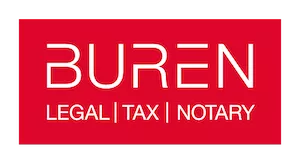False self-employment can result in serious tax consequences for
companies and organizations that hire self-employed individuals.
False self-employment refers to a situation where a contractor
hires someone who is officially engaged as self-employed but in
practice functions as an employee.
In the alert of 19 September 2024, we provided a legal update
on legislation for self-employed individuals. This alert provides a
fiscal update on false self-employment, a summary of the tax
aspects thereof and potential solutions.
False self-employment & fiscal update
As from 1 January 2025, the Dutch tax authorities will fully
enforce regulations against false self-employment. Companies and
organizations that hire individuals as self-employed professionals
for work that they do not perform independently may immediately
face obligations to make corrections, fines and additional tax
assessments, without prior warnings or instructions. Corrections
can be applied retroactively but only until the date of the
moratorium's end i.e. 1 January 2025. Errors made before this
date are therefore less likely to lead to fines unless there is
evidence of malice or in case previous warnings have not been
followed up.
On 1 January 2026, the Act on the clarification assessment of
employment relationships and legal presumption' (VBAR) is
envisaged to enter into force. This law aims to clarify the status
of employment relationships, i.e. determining when someone is
working as an employee and when they can work as a self-employed
professional. This classification is crucial for determining
whether wage tax and social security contributions need to be
withheld. The VBAR was announced on 11 June 2024 though internet
consultation. More information on the VBAR can be found in the
alert of 19 September 2024.
Tax consequences of false self-employment
The tax consequences of false self-employment are significant.
The company or organization that hires a false self-employed
professional may face additional tax assessments or social security
contributions, payroll taxes, and fines. In 2024, regular wage tax
rates, including social insurance premiums, are 36.97% (for taxable
wage up to €75,518) and 49.5% (for taxable wage exceeding
€75,518). Employee insurance premiums amount to approximately
18.5% in 2024.
The non-filing of required wage tax returns and non-payment of wage
tax can result in fines, for instance, fines for non-filing of
€68 for first-time filing failures and fines for payment
failures of up to €5,514. Substantial fines (in Dutch:
'vergrijpboetes') can be imposed of 50% of the
unpaid amount in case of intent and of 25% of the unpaid amount in
case of serious negligence. In the year 2025 the Dutch tax
authorities will be lenient in imposing substantial fines on
employers and workers who can demonstrate that they are actively
working to reduce fake self-employment.
For VAT purposes, false self-employment may result in a repayment
obligation of earlier deducted VAT. The contractor may try to
recover withheld wage tax and VAT from the self-employed
professional, but, for instance, certain employee insurance
premiums cannot be recovered.
In addition to the above tax consequences, other issues may arise.
For example, if self-employed professionals are hired through third
parties or in connection with completing a project, the contractor
may be held liable for unpaid wage tax and VAT by the third party
or the self-employed professional based on a secondary tax
liability. Also, there may be labour law consequences.
Solutions & tips
The adverse tax consequences of false self-employment can for instance be mitigated by:
- Assessing which contracts with self-employed professionals may qualify as false self-employment.
- Creating a procedure for hiring self-employed professionals, including identification and keeping records of the days and hours worked in a timesheet.
- Drafting contracts based on a model agreement published by the Dutch tax authorities. Although model agreements will be phased out as of 1 January 2025, ongoing model agreements will be honoured until the end of their approval period. The last model agreement expires in 2029. In addition, the actual working relationship between the contractor and the self-employed professional should be aligned with the terms and conditions of the contract.
- Including provisions in contracts with fiscal indemnities for the contractor.
- Verifying risks of chain or hiring liability when hiring though third parties or taking on a project.
- Consider mitigating measures, such as depositing funds in blocked bank accounts (G-accounts), working with certified employment agencies or requesting a statement regarding payment behaviour from the Dutch tax authorities.
The content of this article is intended to provide a general guide to the subject matter. Specialist advice should be sought about your specific circumstances.



